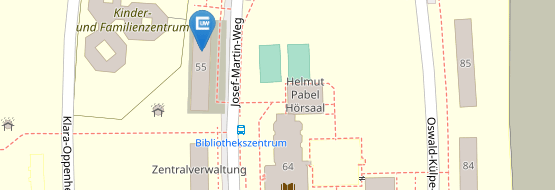internship abroad
3 steps to an internship abroad
Häufige Fragen zum Auslandspraktikum
Compared to domestic internships, internships abroad promote additional skills. As you will be dependent on linguistic exchange on a daily basis, you will further improve your language skills in the respective working and national language. Dealing with other cultures also strengthens your intercultural skills and sensitivity. As you will have to find your way around abroad independently, you will also train your teamwork skills and work on your openness and adaptability.
Other soft skills such as independence and organisational skills are also promoted by an internship abroad. These are already demonstrated during the planning of the stay abroad and also afterwards abroad, as you learn to find your way in a different culture.
An internship abroad will allow you to develop numerous future skills that will make it easier for you to start your career and will also prepare you for an international career or a job in an international environment.
When deciding which country to choose, you should first consider which country and culture you are most interested in and which language you would like to improve your skills in. The working language during an internship may well differ from the local language. You should have a good command of both languages or look forward to improving your language skills in order to be able to move around in everyday life. In any case, you should be aware of what language skills are required at the beginning of your internship and whether you have a good enough command of them.
You should also apply for a residence permit and, if necessary, a work permit in good time. The regulations can vary from country to country and from nationality to nationality, and visa requirements can also vary widely. You should find out in good time so that you can move to another host country if necessary.
It is generally recommended that an internship should last at least 6 to 8 weeks. The more time you spend in a company, the more you will get to know the different areas of responsibility and the more often you will be given independent tasks or projects. You should therefore take the time to gain an in-depth insight into the job and gain work experience.
If you apply for funding for your internship, you must also comply with the conditions of the individual programmes. Funding via Erasmus+ is only possible from a duration of 60 days (1 month is counted as 30 days) and up to 360 days. DAAD short-term scholarships are available for internships lasting between 40 days and 3 months, but only at institutions where internships cannot be funded via Erasmus+. PROMOS grants are available for internships between 1 and 6 months.
Depending on the country in which you would like to complete your internship and the scholarship programme you would like to apply for, you should allow up to a year for the organisation. Initially, it may take some time before you have found an internship. You will then need to clarify important questions regarding the recognition of your internship, insurance and, if necessary, a leave of absence at the University of Würzburg with your internship placement and, if applicable, with your academic supervisors. You may also need to take a language course before you start your internship. You should also consider the application deadlines for any scholarship programmes and the time needed to find accommodation in the host country.
As in Germany, you will not receive a salary for every internship. That's why it can be interesting to look into funding an internship abroad:
There are numerous funding programmes for internships abroad, including Erasmus+, PROMOS, the Swiss-European Mobility Programme and the DAAD scholarship programmes. A brief overview of these programmes can be found here. Further information on scholarship programmes can also be found on the pages of the Service Centre for InterNational Transfer and on the DAAD website.
The rights and obligations that apply to employment and internships vary from country to country. Therefore, you should find out about the applicable regulations in advance, as you cannot assume that they are the same as those in Germany.
When in doubt, it can't hurt to call the German Foreign Office. The Foreign Office provides information not only on the international legal situation, but also on entry regulations (e.g. visa applications) and entry restrictions.
The insurance you need for your internship can vary from country to country. Some internship companies take out some of these insurances for their interns, others do not. You should always check with your employer and the relevant insurance companies.
In any case, you should take out international health insurance for your internship abroad, which includes repatriation to your home country. This will protect you from high medical costs and, if necessary, you will be repatriated free of charge.
You can find answers to many other questions about internships in general, remote internships and your rights and obligations when doing an internship in Germany on our internship overview page.

